- Home
- slideshows
- miscellaneous
- Greece is burning because dry, blisteringly hot conditions are hitting Europe hard this summer - take a look
Greece is burning because dry, blisteringly hot conditions are hitting Europe hard this summer - take a look
The Greeks began a three day period of mourning on Tuesday. At least 80 people are dead as a result of the fires that broke out late Monday near Athens. The death toll is expected to rise.

The last time flames were this bad in the country was in 2007, when wildfires that broke out on the Peloponnese peninsula killed 64 people.
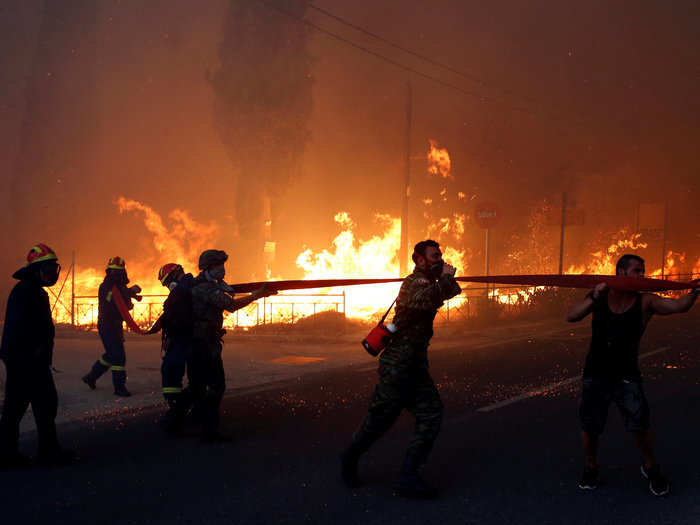
Source: Business Insider
The cause of the fire is still being investigated, but some officials think the blazes may have been started deliberately. Sometimes people start fires to clear land for building.
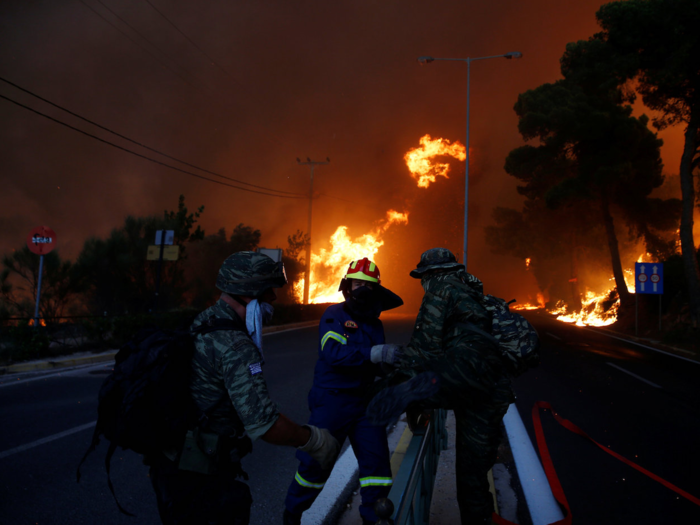
Source: Reuters
Whatever the cause, the fires spread quickly, fueled by high winds and the dry, rain-free conditions that nearly all of Europe has been suffering through this summer.
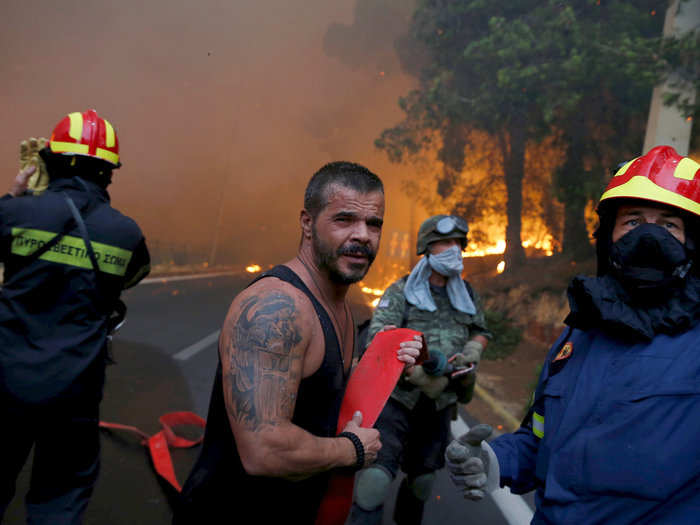
Some people in coastal towns jumped into the sea to stay alive, while others suffocated to death, trapped on cliffs or in their cars.
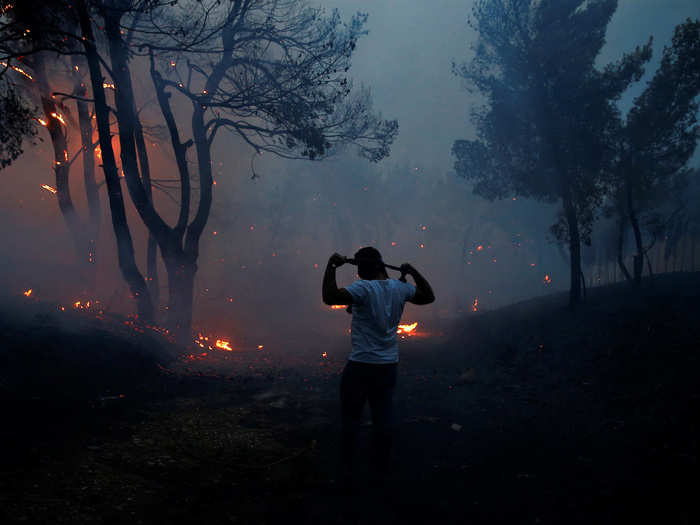
A group of 26 bodies, both children and adults, who were huddled together trying to escape, were found just steps from the sea.
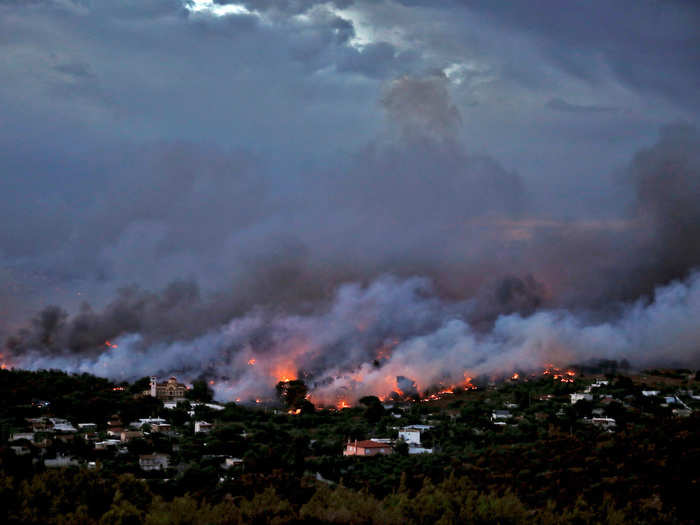
Source: Business Insider
Egyptian Fisherman Tawefik Halil who helped the Greek coast guard pull survivors from the water, said it was a harrowing task.
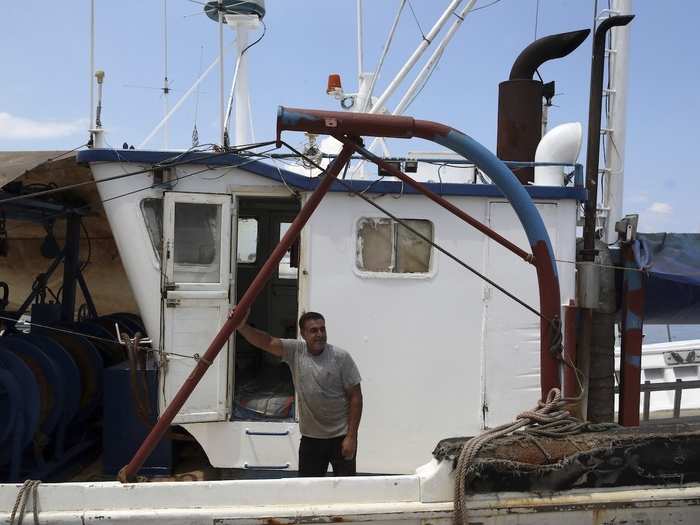
"There was so much wind," he told the Associated Press on Wednesday. "We could not breathe. I almost fainted at some point from all the smoke, and it was very difficult, my friend, it was so difficult. I have never seen such a difficult thing before."
Agni Gantona said she spent five hours in the water before a boat came to pick her up.
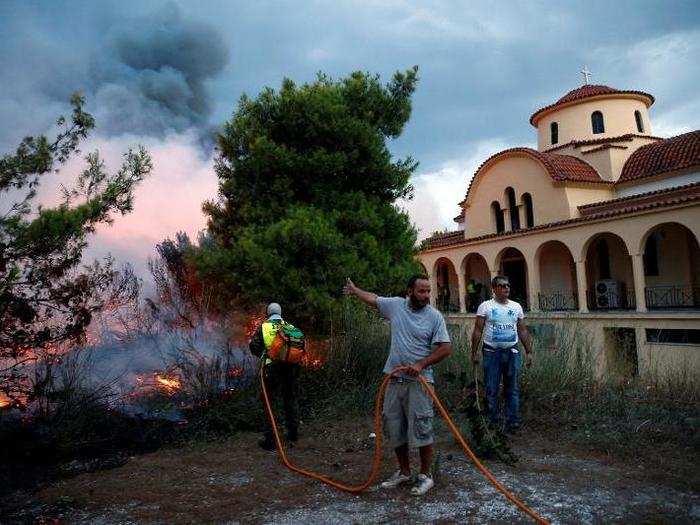
"Some were burned, some were near fainting from the smoke and the flames. Groups of us, we were holding each other by the hand and shouting each other’s names, because we could not see from the smoke," she told Reuters.
This is what Mati, the town that Gantona was escaping, looks like now:
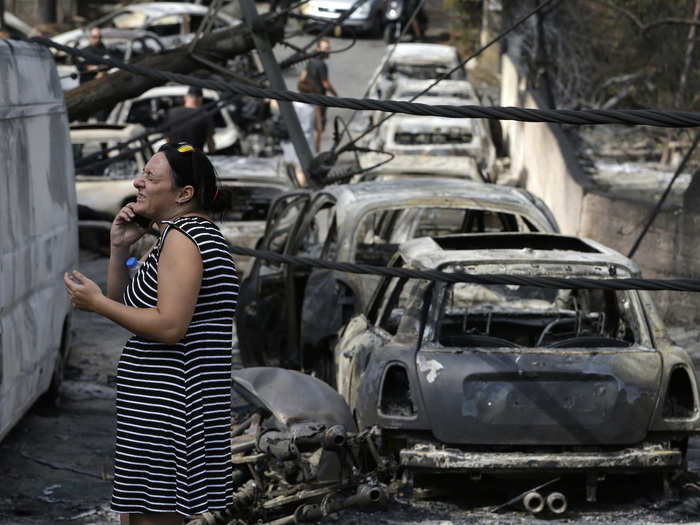
But the problem’s not contained to Greece. Over a third of Europe is covered by forest and wooded lands that could become more vulnerable in the coming years as the continent dries up.
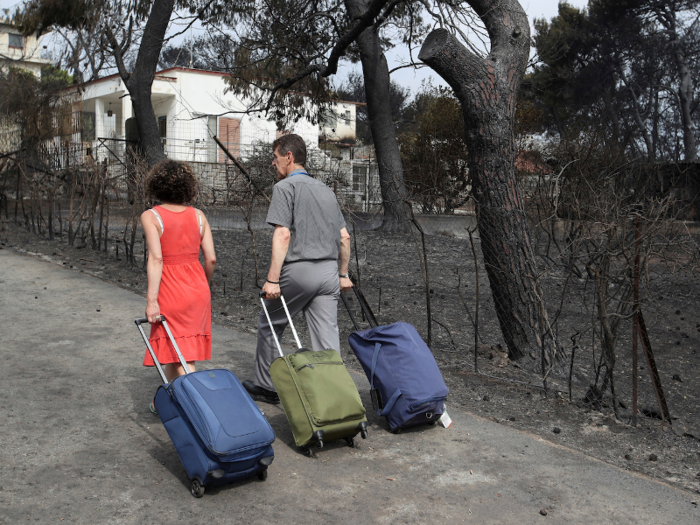
Source: European Commission report
Greece isn't the only country that's been wiped by this summer's heat. Temperatures are currently topping out near 100 degrees in Belgium, the Netherlands, and Western Germany.
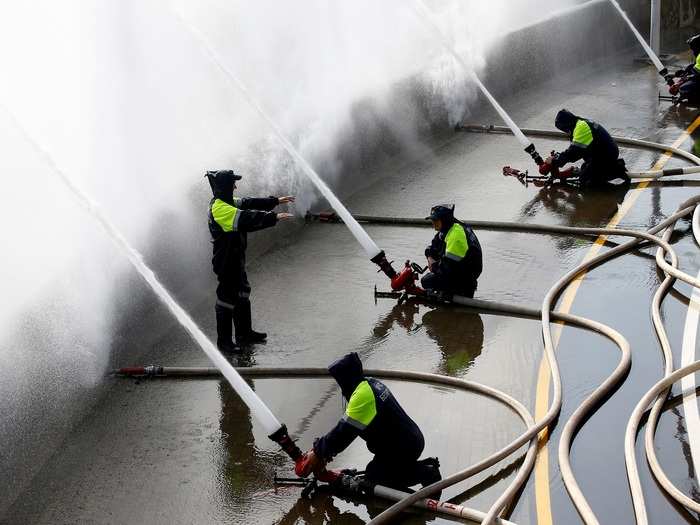
Source: BBC
It's also heating up in the Arctic, where a massive 300-foot iceberg drifted perilously close to this town in Greenland earlier this month.
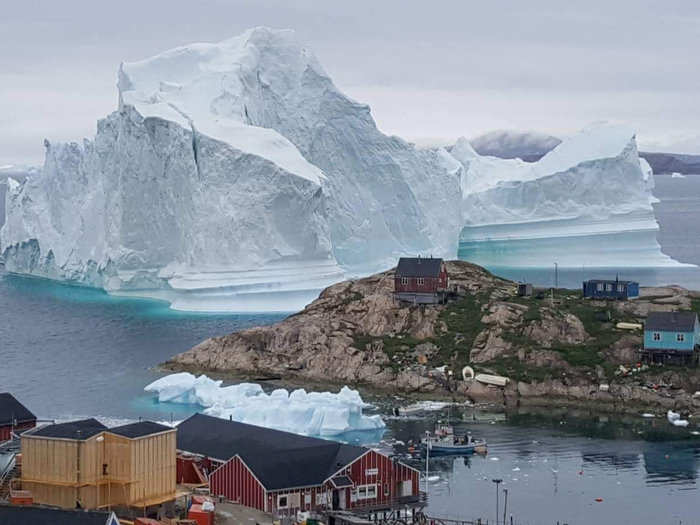
Source: Business Insider
Wildfires torched the countryside of Sweden, hitting areas above the Arctic Circle with flames.
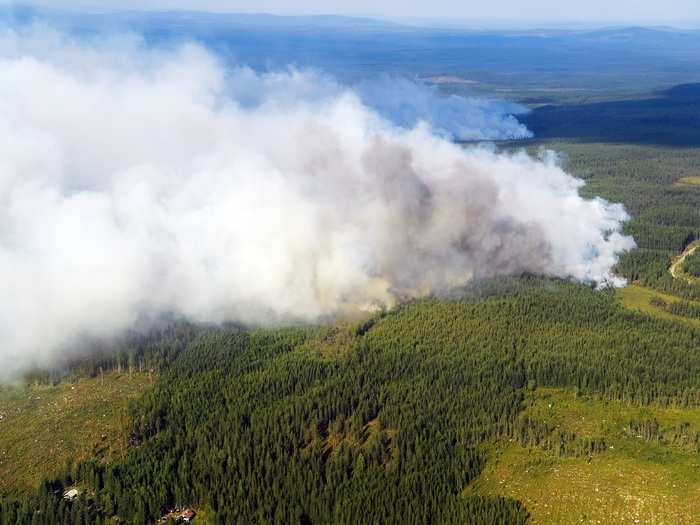
These are the most serious wildfires the country's seen in decades, and the Swedes called Norway and Italy in to help fight. "It’s very, very dry in most of Sweden," Jonas Olsson, a hydrologist at the Swedish Meteorological and Hydrological Institute told the New York Times.
Dry conditions are becoming a problem in Norway, which has gotten about 45% less rain than usual this year. Electricity prices have almost doubled as a result.
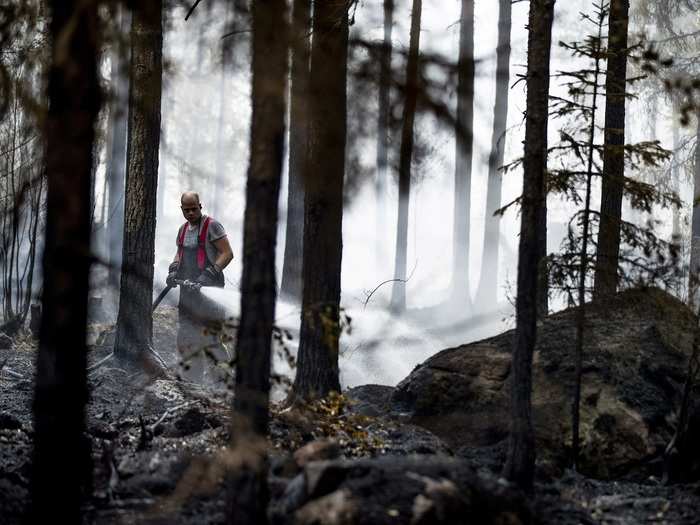
In nearby Finland, more than 50 people had to be evacuated from homes and summer cottages last week, as fires raged.
Source: YLE News Finland, Reuters
Scientists expect that the hardest hit European countries will continue to be those closer to the Mediterranean, especially Spain, Portugal and Turkey. Wildfires in Portugal last year killed more than 100 people.
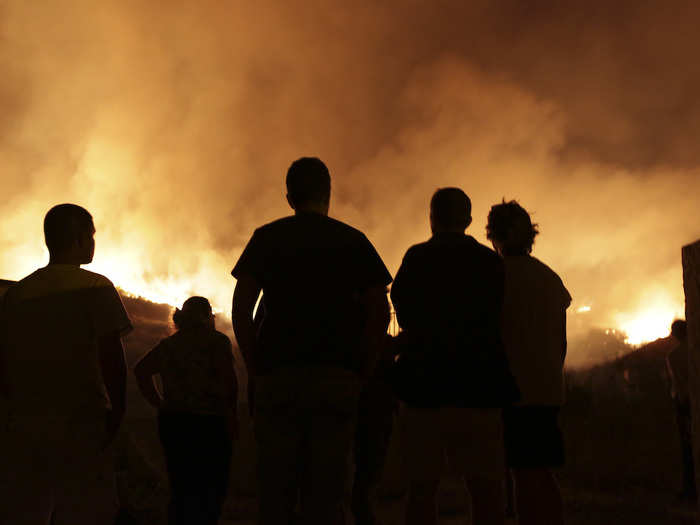
Source: The Guardian
Northwestern Spain was also hit hard then.
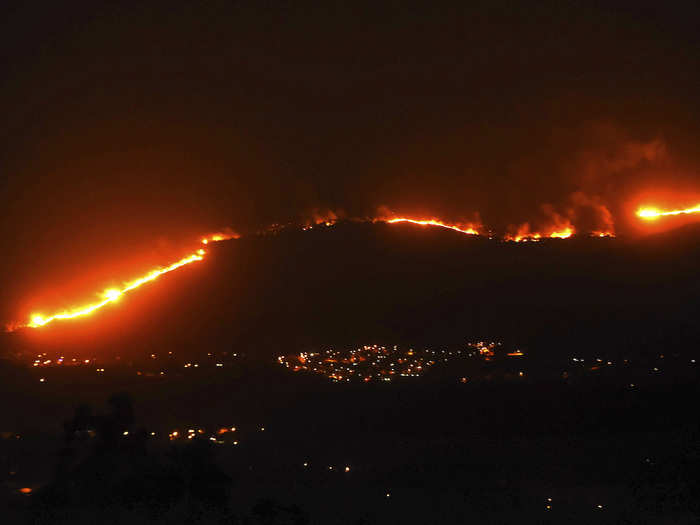
The fires and heat could even make the UK's Brexit tougher.
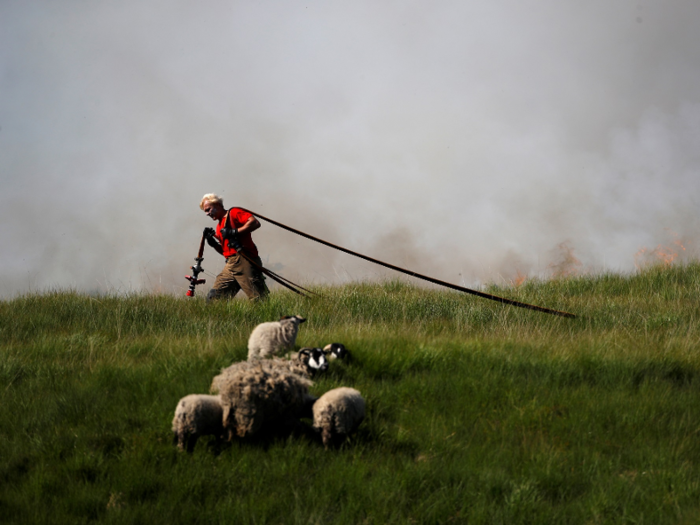
Britain's big shift out of the EU trading bloc, scheduled to take place eight months from now, could cause some supply disruptions at customs and border crossings in the UK.
But this summer's dry, hot conditions mean some farmers simply aren't prepared for any extra demand this year.
"We're already seeing farmers struggling with crops, with feed," Ian Wright, director general of the Food and Drink Federation in the UK told the BBC. "There are vegetable shortages because there hasn't been enough rain."
Scientists expect that in the coming years, more hot conditions in Europe will mean deeper layers of wood, leaves and soil in the forests will dry out, becoming captive, brittle tinder just waiting to be ignited. Forests that are stressed by drought can also be more susceptible to attack by insects, who'll leave more dead wood around to catch fire.
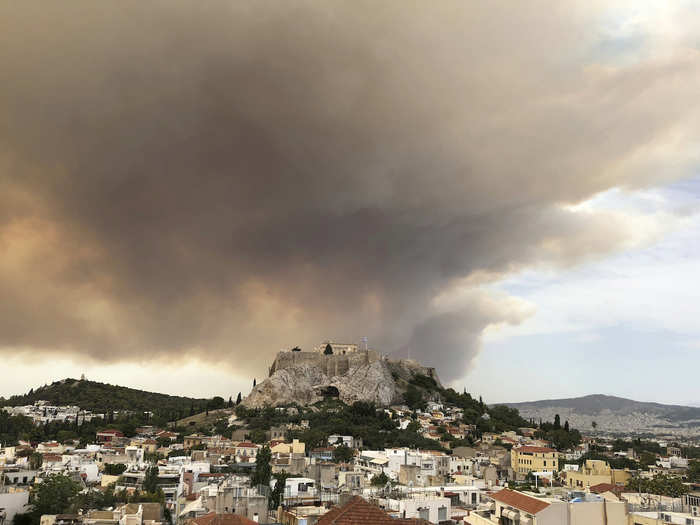
Source: European Commission report
Popular Right Now
Popular Keywords
Advertisement